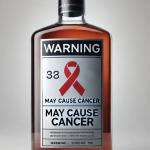Last month I wrote about the possibility that naloxone – the only opioid overdose antidote – may no longer work because of carfentanil-laced street drugs.
Policy & Ethics
As a physician, I know how convoluted and complex navigating a patient seeking care in our health system can be.
Which has priority, Individual Rights or Collective Needs?
There remains little doubt that an increase in the price of sugar-sweetened beverages, SSB, results in fewer purchases.
Recent reports document the surging popularity of the “medical freedom” movement, which believes public health regulations interfere with their mantra of “my body, my choice.” This translates into self-serving anti-vax stances, opposition to
Article 6 of our Constitution establishes the supremacy of federal law over that of the States, a change from the Articles of Confederation. It also defines the oaths that members of our three branches take upon assuming office.
In a matter of days, there will be a change of administration at the EPA.
The technology to deselect embryos with genetic determinants of certain diseases has been known for at least two decades.
My conversation with Lars Larson began with a provocative question: Should individuals with schizophrenia be air traffic controllers?
Alcohol has once again made headlines, this time with a warning that is likely giving industry executives sleepless nights. Dr. Vivek Murthy, the U.S.












